
Brendan Cowell, actor and writer, was enjoying a successful eight-year stint in London when he had a night out with an unnamed “fabulous British theatre actor”. At 2am the two ex-Hamlets were sharing a bottle, performing the Dane’s speeches on the curbside, and agreeing he never leaves those who play him. “It’s almost like there should be some place for us to go,” said Cowell to his companion. “Some kind of asylum or camp.”
“That’s a good idea for a show,” came the reply.
Cowell imagined “a place called ‘Hamlet Camp’, where you can go and fence with Horatio, have a walk along the brook with Ophelia and maybe do some basket-weaving with your mother. It’s kind of a cuckoo’s nest for guys that haven’t let go.”
Five years later, having returned to Australia, he put the idea to his old acting chums, Ewen Leslie and Toby Schmitz, both fellow ex-Hamlets, and they jumped at it. “Now it’s taken on its own life,” Cowell says, “because we’re writing it together.”
The camaraderie between the three is palpable as we speak. It’s 24 years since Cowell’s play Men premiered at the Old Fitz, with Schmitz and Cowell co-starring, while Leslie poured beers at the bar. Cowell had wanted a “suave and cocky” actor for the role, and first saw Schmitz when they were both in a line of actors at an STC audition. He watched Schmitz, explaining he was pressed for time, smoothly jump the queue. “He’s perfect!” Cowell remembers thinking. “So I cast him in my play, and we became mates.” Cowell and Leslie, meanwhile, connected in a play reading, and the three became regular drinking buddies and collaborators.
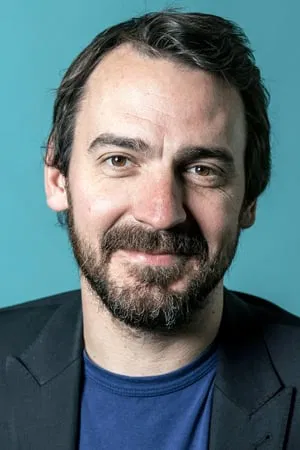
Leslie, the first to play Hamlet, did so in drama school at 19, then for Melbourne Theatre Company at 30, and finally in Belvoir’s 2013 iteration, replacing Schmitz after watching him do it 10 times. “No one was available to rehearse,” Leslie explains, “so my way of learning this production was just watching it. The 11th time I showed up, he was gone, and I stepped into it.”
Cowell played Hamlet for Bell Shakespeare in Sydney and Melbourne in 2008. “When I got to Melbourne, I got a terrible review in The Age,” he recalls, “and it kind of knocked me for six. But what it allowed me to do was to go out there and not really give a f–k. It started to just come through me almost like I was a vessel for the text.” He dropped the facade of what he calls “Brendan’s take on Hamlet”, instead thinking, “This is the greatest philosophy ever written. Just let it burn through you, and your heart, soul, fears and adolescence will come out through the text.”
Schmitz, having done it in Brisbane in 2010, was keen to revisit the role at Belvoir. “I had things I wanted to have another crack at,” he says. “You’re never finished with it… There’s an almost universal obsession with the play. Not just with people who played it, but with people who only saw it or read it. It gets its claws into you. Often if you’re lucky enough to have another crack at it, you’ll come armed with things you’d like to do differently, but then have to hand over to the director’s vision.”
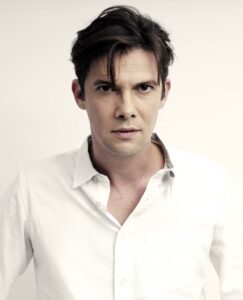
All agree the role is so sweeping that actors tap into some aspects, while missing others. “It’s like that quote, ‘Youth is wasted on the young’,” says Cowell. “You have to play Hamlet when you’re young, yet you shouldn’t. You get it when you’re older, but it’s wrong to play it old. You did it young, but didn’t know how to play it yet. But that’s also great because maybe not knowing is how we contribute to the great canon that makes up Hamlet.”
“The person that I would love to see play the role now is [octogenarian] Peter Carroll,” says Leslie. “It’s like the older you get, the more right you are for the role. You’re also in the other sense, of course, completely wrong for it.”
“I truly believe that age-blind casting is our last hurdle,” opines Schmitz, “and will actually open up all the Shakespeares… When we are totally fine watching any age play any part, all sorts of things will start to unlock, Hamlet included.”
Despite their intertwined careers, the three have never shared a stage. Schmitz says that the collective writing and directing process for Hamlet Camp partly takes them back to their earliest years. “It’s kind of a jamming situation that we’re familiar with, and it is highly enjoyable,” he says.
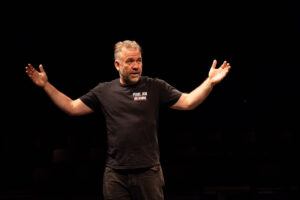
Cowell quotes Richard Griffiths’ glorious speech from the film Withnail and I: “It is the most shattering experience of a young man’s life when one morning he awakes and quite reasonably says to himself ‘I will never play the Dane.’” “Well,” says Cowell, “there comes another day in an ageing actor’s life where he realises that he has played the Dane and that he has to let go and move on… It’s time to grow up. So it’s also about that.”
“The idea of three guys in their 40s talking about Hamlet is quite sad and pathetic,” says Leslie, “so we’re leaning into that as well. It’s also a meditation on what it is to be an actor and an artist.”
“Which, wonderfully and famously,” adds Schmitz, “Hamlet the play gets right into as well, when he’s giving his advice to the players.”
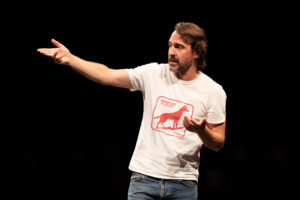
Several actors have remarked that rather than them becoming Hamlet, Hamlet seemed to become them, so all-encompassing is the role. “It took a while for me to realise that,” says Leslie. “The second time I did it at MTC, Rob Menzies was playing the Ghost, and he kept saying to me, ‘You just have to be you and sit at the centre of these thoughts.’ And I had so much noise in my head that I wasn’t quite hearing him. It wasn’t until I replaced Toby at Belvoir that I kind of worked that out, and got closer to some bits than I had before. But then I was 33, so at the same time I’d moved away from other bits.”
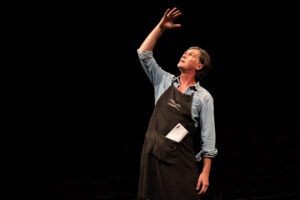
Unlike most stage characters, Hamlet knows infinitely more than the audience. “One of the biggest reasons why it gets under your skin,” says Schmitz, “is the dramaturgical genius of it and the dramaturgical surprise of stripping the audience of that dramatic irony. Even by the end, there are still so many mysteries. Did he love Ophelia? He never answered half the questions.”
“Before I’d go on stage every night,” says Cowell, “the great and wonderful Barry Otto, who was the hungriest theatre actor I’ve ever met, would come up and say, ‘You go out there, you tiger, and you work out who you can trust.’ He’d say something like that to me every night. And it was so wonderful, that hunting of trust in Hamlet. Who can I love? Who can I trust? Who can I believe? And that’s being human. That’s being young, isn’t it?”
Cowell is also adamant you don’t need to know the play to enjoy their show.
Hamlet Camp: Carriageworks, January 14-25.